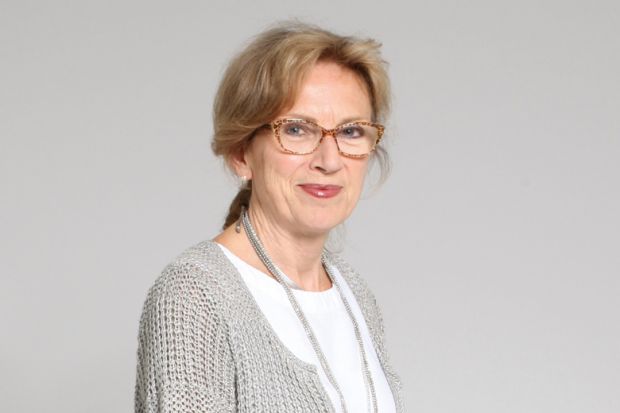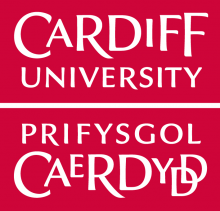Yvonne Roberts is a prizewinning journalist, novelist and non-fiction author. She is a former chief leader writer for The Observer, and is now a writer and columnist on the paper. She is in the process of writing her fifth novel and has authored several books on gender, social policy, resilience, education and ageing. She is a fellow of the social innovation thinktank the Young Foundation. Last month she was announced as the University of Sussex’s inaugural political writer-in-residence.
Where and when were you born?
Newport Pagnell, Bucks, 1948, a few weeks after the birth of the NHS.
How has this shaped you?
The NHS, the welfare state and the opportunities my generation were given to attend university from working-class backgrounds without ending up hugely in debt have shaped my politics and me. Newport Pagnell less so. I was three months old when my parents moved to Madrid for three years, and they continued to travel for all my childhood, often with me in tow.
This is a brand-new role. How did you feel to be asked to be the inaugural political writer-in-residence?
Delighted, honoured, intrigued and then anxious about how to make the role work well for politics undergraduates and the politics department. I’m sure we’ll all learn a great deal.
It’s not the most obvious university appointment; some may even be baffled by it. What’s the significance of a university having a political writer-in-residence?
Ralph Nader said: “Turn on to politics or politics will turn on you.” The goal of passing exams, while obviously important, can sometimes result in students becoming too timid to develop their own voice, articulate their own opinions and express their own convictions in a way that engages a wider audience. The political writer-in-residence will hopefully act as a sparking plug. The most innovative universities are connecting up with the wider world in increasingly imaginative ways, so no need for bafflement!
What are your plans for the role?
To generate debate and encourage political analysis and writing on contemporary issues and political decisions that, for instance, are reshaping the welfare state, stoking populism and nationalism, challenging the market economy and the power of multinational corporations and shareholders.
Do you think Britain has a good crop of political commentators in the media?
A few are excellent, some are lazy – only a few think outside predictable tramlines.
What’s your view on the constant mudslinging about impartiality that dogs many political journalists – in light of the recent accusations aimed at Laura Kuenssberg?
Political leader writers, columnists and commentators present a hopefully informed point of view. In contrast, news reporters have a duty to be balanced and impartial. They should avoid reinforcing a narrative framework that, because it has become the norm, appears objective rather than subjective – eg, Labour under Corbyn is a lost cause. To adopt the narrative shows a bias.
You have held a number of high-profile [political] journalism roles. What has been your trickiest story to report on in your career?
It’s always the one just completed.
You’ve written books on social policy among other things, and were an associate of the Young Foundation. Do you think our current society is particularly unequal?
The evidence indicates that – as [economists] Thomas Piketty, Paul Krugman and many others have written – the very rich are sitting on their assets; social mobility is turning into downward mobility; and the promise that an improving income is the reward for hard work is broken. Unequal societies are bad for the health and wealth of the majority and hugely damage civic society.
Do you think our universities do enough in terms of social mobility and in their widening participation efforts?
Sussex calls students who are the first to go to university from their families “first generation scholars” – and gives extra support. The government White Paper details plans to broaden admissions and increase the numbers of black and ethnic minority students. The challenge is to continually find ways to ensure that everyone has their full potential developed at university and their well-being properly addressed. But raising aspirations needs to happen from an early age with more imagination applied.
What keeps you awake at night?
Snoring.
Have you ever had a eureka moment?
Yes, frequently, when I remember where I left my glasses.
What has changed most in higher education over the past 10 years?
Turning students into customers with differing expectations of what counts as value for their money. It has hugely damaged learning and the relationship between teacher and taught.
What’s your most memorable moment at university?
Making cheese sandwiches for the male students organising one of the first sit-ins held at the University of Warwick. Then, I discovered feminism and saw the error of my ways.
If you were a prospective university student now facing £9,000 fees, would you go again or go straight into work?
I would still go to university – for the love of learning it hopefully sparks, the friendships it forges, the clever people it introduces you to and the freedom from pressured paid work, for a time at least. But I wish that vocational education, apprenticeships and learning on the job had a much higher value and status in this country.
What advice would you give to your younger self?
It does get better. Stick at it.
What advice would you give to students?
Seek help when you need it, enjoy what you can, [remember that] doing your best doesn’t have to mean being the best.
What are the best and worst things about your job?
People.
What one thing would improve your working week?
Five extra days.
If you were the universities minister for a day, what policy would you immediately introduce to the sector?
Have universal free university education in return for two years’ community work post-graduation.
Appointments
Dianne Ford has been appointed executive dean for health and life sciences at Northumbria University. She joins from Newcastle University, where she was professor of molecular nutrition and director of PhD studies in the Faculty of Medical Sciences. A fellow of the Society of Biology, Professor Ford has published extensively on research into understanding how our diet interacts with cellular function. She will lead Northumbria’s largest academic faculty, overseeing nearly 12,000 students and 600 staff. “I have been so inspired by the energy and enthusiasm of everyone in the university, and particularly in the senior team, to drive and develop research at Northumbria,” she said.
Tristram Hooley, professor of career education at the University of Derby, has been appointed to the Careers & Enterprise Company – the country’s independent careers body – as senior research adviser. Professor Hooley, who is also head of Derby’s International Centre for Guidance Studies, has focused his work on career development, guidance and education, as well as social science research methods and learning technology. “The Careers & Enterprise Company places significant importance on the role of research in developing new solutions and approaches to the way we improve careers and enterprise provision in this country,” he said. “I’m looking forward to helping the company continue in its aim of ensuring that its interventions are rooted in evidence.”
The University of York has announced three professorships in its sociology department. Joanna Latimer, Vicki Robinson and Maggie O’Neill have recently joined from the universities of Cardiff and Sheffield, and Durham University, respectively.
Glyndwr University has announced several appointments. Mandy Robbins and David Skydmore have become professors, while Stuart Cunningham, Bo Liu and Yuriy Vagapov have been made readers. They all take up their positions on 1 August.
POSTSCRIPT:
Print headline: HE & me
Register to continue
Why register?
- Registration is free and only takes a moment
- Once registered, you can read 3 articles a month
- Sign up for our newsletter
Subscribe
Or subscribe for unlimited access to:
- Unlimited access to news, views, insights & reviews
- Digital editions
- Digital access to THE’s university and college rankings analysis
Already registered or a current subscriber?






